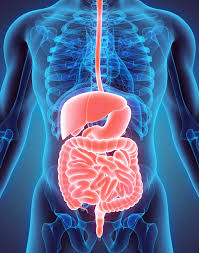
Nutrahara Blog
Nutrahara Blog
How Digestion System Works
Introduction: How Digestion System Works
To stay healthy, one very important factor that determines this is your digestive system. Without a properly functioning digestive system, we will not get the proper nourishment from the food and drinks we consume. Digestion helps breaks nutrients and supplements into smaller chunks to enable your body to absorb and use them for growth, energy, and cell repair.
It is important to understand how digestion system works to adopt a healthy diet and lifestyle. In this article, we will discuss why digestive system is important, what digestion medical term is, and how digestion system works.
The human digestive system is comprised of the gastrointestinal tract, also known as the digestive tract. This is a series of organs and structures that include hollow and solid organs. Solid organs are the pancreas, liver, and gall bladder. The gastrointestinal tract consists of hollow organs that join as a long tube from your mouth to your anus. The hollow organs are the mouth, esophagus, small intestine, stomach, large intestine, and anus.
The GI tract starts at the lips till it reaches the anus. It consists of the oral cavity that houses the teeth for chewing and the tongue for mixing and kneading food with saliva. From there it leads to the pharynx, esophagus, stomach, small intestine, large intestine and finally terminates at the rectum (6).
Digestive juices that aid in the physical and chemical breakdown of ingested food and are produced by glands in the body include the salivary glands and gastric glands. Digestive juices also contribute to the eventual elimination of non-digestible wastes.
Digestion vs Ingestion
The major distinction between ingestion and digestion is that one involves putting food into the body while the other involves breaking down the meal into smaller molecules that the body can absorb. Ingestion occurs first before digestion can take place. You can either ingest food, water, medicine, or fluids.
Digestive Process
The process by which our food Digests involves both mechanical and chemical processes, causing the food to be broken down into smaller pieces. Digestion begins with the enzymes present in saliva in the mouth. Your swallowing reflex aids the food you eat move from your mouth into the esophagus.
Here, muscular contractions known as peristalsis causes the food to move down the tube into a muscular bag called the stomach (7). Both chemical and physical digestion occurs in the stomach. The constant churning movements of the tubular walls of the stomach mix the ingested food with a digestive fluid called gastric juice.
The cells that line the stomach produce highly acidic fluid, causing the enzymes present to start the chemical breakdown of the food. After some time, the food is churned into a creamy paste also known as chyme.
The end of the stomach called the pyloric sphincter controls the exit of chyme into the duodenum, the first part of the small intestine. Ducts from the pancreas and gall bladder secrete fluids rich in digestive enzymes and bile salts into the duodenum. Subsequently, certain cells lining the small intestine produce succus entericus, a fluid made up mostly of mucus, water, and sodium bicarbonate.
All these fluids help to lubricate the partly digested food as it moves through the gut, emulsify fats and oils, neutralize the acidic chyme, and enzymatically digest the carbohydrate, proteins, and fatty acids included. This whole process of breaking larger molecules into smaller molecules enables the absorption of the smaller molecules into the bloodstream where they can be utilized in various parts of the body.
How Is Food Absorbed Into The Body?
The small intestine is 5–6m long in which the majority of the chemical digestion occurs in the first meter. Absorption takes place once the smaller molecules are digested. There are millions of tiny finger-like structures called villi that project from the lining surrounding the small intestine.
These tiny structures increase the surface area of the small intestine and contact with the products of digestion, allowing for rapid absorption into the bloodstream. As soon as absorption takes place, they are transported to the liver through the hepatic portal vein.
How is Food Ejected From The Body
By the time all of the digested food components, together with the vitamins and minerals that are beneficial to the body, have been separated from the watery contents by the small intestine, what is left over consists of indigestible dietary products like cellulose gotten from the ingestion of plant-based foods. As undigested products accumulate in the rectum, a response is stimulated in the rectum that ultimately leads to the evacuation of waste products through the anus.
How To Keep Your Digestive System Healthy
You do not have to wait till you feel unwell to take extra care of your digestive system. Here are some of the natural ways to keep your digestive health.
1. Consume a Diet Rich In Fiber
A high-fiber diet full of fruits, whole grains, veggies, and legumes has been shown to promote the health of your digestive system. You are less likely to get constipation if you consume a high-fiber diet, which helps keep food moving through your digestive system.
A high-fiber diet can also assist you in preventing or treating several digestive disorders, such as diverticulosis, hemorrhoids, and irritable bowel syndrome (IBS). You may use it to reach or keep a healthy weight.
2. Avoid Caffeinated Drinks
Caffeine-containing beverages, such as coffee, tea, colas, and some fizzy drinks increase stomach acid in some people, causing heartburn. Caffeinated drinks should also be avoided by people who have ulcers. Fizzy drinks in general tend to make people feel bloated, which can also cause heartburn.
Choose non-carbonated, caffeine-free beverages to reduce your risk of experiencing digestive issues, such as water, herbal teas, and milk. If you can’t live without your coffee or tea, try to stick to only one or two cups per day.
3. Increase Intake of Prebiotics and Probiotics
Probiotics are the same as yeast and beneficial bacteria that are already present in your digestive system. They work to counteract the negative effects of antibiotic use, poor diet, and stress on the body. Probiotics also can boost immunity, help absorbs nutrients, aid in the breakdown of lactose, and even aid in the treatment of irritable bowel syndrome.
Examples of probiotic-rich food include yogurt, kefir, miso soup, and cheese. You can also take a probiotic supplement to augment your diet. There is also concentrated probiotic juice called digestion shots. The digestion shot aims to aid digestion and absorption of food and boost gut health (4)
4. Drink Water Often
Water aids proper digestion by allowing the food you eat to flow easily through your digestive system. Dehydration is a common cause of constipation and you want to avoid that.
5. Avoid Excessive Alcohol Intake and Smoking
Alcohol can raise your stomach’s acidity, leading to stomach ulcers, heartburn, and acid reflux. Smoking increases your chances of gastrointestinal disorders including cancer and nearly doubles your likelihood of experiencing acid reflux. According to research, those with digestive problems who stop smoking have an improvement in their symptoms.
Signs of Digestive Problem
Digestive problems can happen to anyone. Here are some of the Common symptoms you may experience before choosing to visit a digestive care consultants, they include bloating, cramps, nausea and vomiting, swallowing problems, diarrhea, or constipation.
Although these may not always seem like a sign of something serious, certain conditions like Diverticulitis, Irritable Bowel Syndrome, Crohn’s Disease, and ulcer can put you at a greater risk for these symptoms.
Other digestive diseases include;
- Rectal problems like hemorrhoids, rectal prolapse, and proctitis.
- Cholecystitis, gallstones
- Stomach issues like gastritis, and ulcers caused by H.pylori(Helicobacter pylori)
- Liver diseases such as cirrhosis, liver failure, and hepatitis B and C.
- GERD (Gastrointestinal esophageal reflux disease)
- Esophagitis
- Pancreatitis
- Intestinal problems such as malabsorption, celiac disease, and Crohn’s disease.
Your digestive health consultants may do a number of tests to diagnose your digestive issues, including endoscopic retrograde cholangiopancreatography (ERCP), colonoscopy, upper GI endoscopy, and endoscopic ultrasonography.
The digestive tract is the subject of numerous surgical procedures. They include endoscopic, open surgery, and laparoscopy treatments. The liver, pancreas, and small intestine can all be transplanted. Several digestion doctors can aid in the diagnosis and treatment of digestive issues. A physician specialist with further training in the diagnosis and management of digestive diseases is known as a gastroenterologist.
How to Enhance Digestive System with Digestion Herb
As commonly said, herbs and spices are the spice of life. They help enhance nutrient absorption and digestion while assisting the gut in breaking down meals efficiently. From the Mediterranean to the Middle East and elsewhere, there are a plethora of medicinal plants that people have used to enhance their digestive health.
Each of the digestive herbs possesses a unique bioactive ingredient that can ease digestive discomfort and bring relief to your entire system.
Your immunity, toxin eradication, energy levels, mental clarity, mood, and other factors can all be boosted when your digestive system is operating at its peak. That’s why it’s crucial to consume a balanced diet, get lots of exercise, maintain an active lifestyle, and use herbal supplements daily.
Here are examples of digestion herbs commonly used to treat digestion problems (2);
1. Psyllium
Among the best herbs known to have digestive properties is psyllium without any doubt. Psyllium fiber is a fantastic way to quickly and easily increase daily your fiber consumption. Fiber is believed to assist regularity, healthy excretion, and gastrointestinal health.
2. Turmeric
It is best known for its favorable impact on gastrointestinal health and function as well as its capacity to support a balanced inflammatory response. The potential of this golden root to promote digestion, respiratory function, liver and pancreas function, joint health, and other functions has made a considerable impact on modern medicine.
3. Cloves
The digestive system benefits greatly from clove because it boosts gut immunity. Cloves can also be used to relieve the discomfort associated with diarrhea. This can be taken in form of the digestion of essential oils.
4. Cardamom
Elachi, also known as cardamom, is a preferred spice for improving digestive health. It has antispasmodic, antioxidant, diuretic, and anti-inflammatory properties which help relieve gas, cramps, and nausea.
5. Bael
Bael Leaf is the herb for you if you’re looking for a mild herbal laxative that works and is safe for daily and long-term use as needed. This herb aids in loosening the stool, acting as a moderate laxative to aid in healthy evacuation while preventing occasional constipation.
6. Licorice
Licorice is a common dietary supplement used today to assist digestion and calm the stomach. This is because licorice contains glycyrrhizin, a substance that may support a healthy inflammatory response and maintain a balanced acidity level in the stomach.
7. Peppermint oil
One of the digestion essential oils named peppermint oil first became popular as a digestive herb in Ancient Greece. Many thousand years later, a growing body of scientific evidence supports the use of peppermint oil for symptomatic alleviation of irritable bowel syndrome, particularly in the form of delayed-release, enteric-coated peppermint oil capsules.
Research has shown that peppermint oil has the effect of a mild smooth-muscle relaxant, calms and inhibit GI contraction, digestive spasms, relieve gas, and reduce discomfort.
Acupuncture Points That Relieve Digestive Discomfort
Acupuncture points increase the movement of energy (qi) throughout the body and communicate with the nervous system to improve essential bodily processes like digestion and sleep and return us to balance.
There are digestion pressure points all over the body that can help the digestive system get back into balance. Many of these digestion pressure point influence the gut, and other abdominal organs to aid digestive health. In addition to acid reflux, constipation, indigestion, bloating, and pain and discomfort, acupressure along these channels can aid. Doing a digestion massage on those digestion pressure points causes relief of abdominal discomfort.
Another way to keep your digestive system up and running is through digestion exercises. The muscles in the digestive system receive more blood when you exercise, which aids in moving food through the digestive system.
Digestion exercises also help reduce inflammation that may occur in the digestive system. Examples of such exercises include kegel exercises, body twisting, sit-ups, deep breathing, brisk walking, etc. (5)A slow walk around the block, for instance, can help with bloating and reduce feelings of fullness.
Digestive System Summary
Various organs of the digestive system work together to break down food into liquid and waste products. The digestive process begins as food passes through the mouth and continues as it travels through the digestive tract, including the stomach, small intestine, colon, jejunum, and ileum.
Digestive juices from the pancreas aid in this process. Food is broken down by chemical and physical means and nutrients are absorbed by the body. The colon absorbs more fluid and creates waste products of digestion, which are stored in the rectum before being eliminated from the body.
The gallbladder plays a critical role in the digestive process by secreting bile, which helps to break down fats. In summary, the digestive system is made up of various processes that work together to efficiently break down food and extract nutrients using its acid and enzymes, while eliminating waste products from the body.
References
- https://www.nhs.uk/live-well/eat-well/digestive-health/good-foods-to-help-your-digestion/
- https://www.healthshots.com/healthy-eating/nutrition/trust-these-9-herbs-and-spices-to-keep-your-gut-health-in-check/amp
- https://www.medicalnewstoday.com/articles/pressure-points-for-nausea#list-of-pressure-points
- https://www.walmart.com/ip/Suja-Organic-Digestion-Shot-with-Ginger-Probiotics-1-7-FL-OZ/457819289
- https://www.wikihow.com/Exercise-to-Improve-Digestion
- https://en.m.wikipedia.org/wiki/Digestion
- https://www.webmd.com/digestive-disorders/digestive-system
Written by the Nutrahara Team
This article was prepared by the expert team at Nutrahara, which includes experienced nutrition scientists and naturopaths dedicated to advancing women’s health through natural wellness solutions. We combine scientific research with holistic practices to help you live your healthiest life.
Connect with us on LinkedIn to stay updated on the latest in women’s health and wellness.











